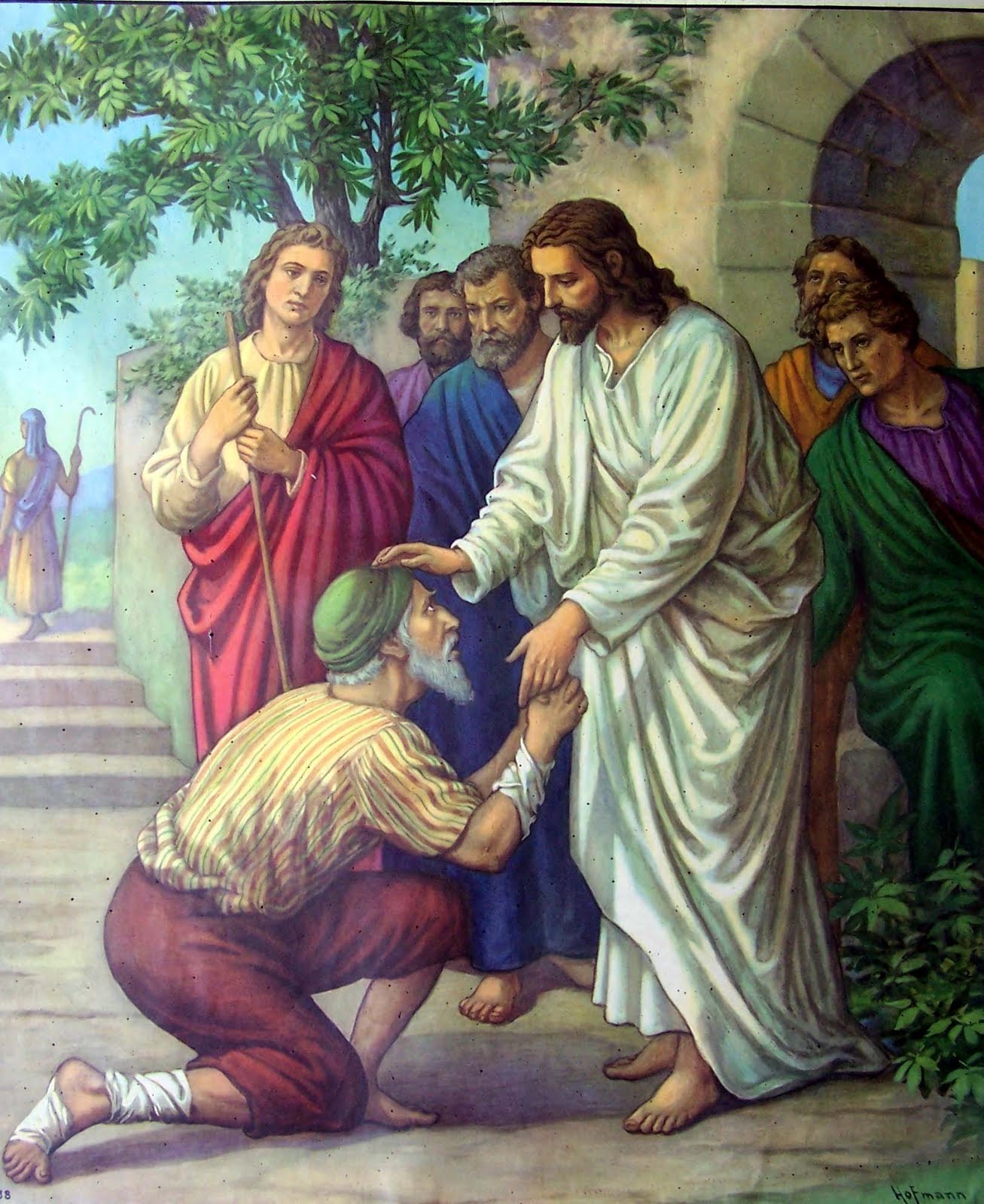
When He had come down from the mountain, great multitudes followed Him. And behold, a leper came and worshiped Him, saying, “Lord, if You are willing, You can make me clean.”
Jesus set the pattern in His baptism. When He began His ministry, His first set a beeline for the sinners who were gathering in the Jordan. Where the sinners gather seeking the Lord, Jesus joins with them, to share with them the declaration of the Father, “This is my beloved Son, in whom I am well pleased.” The Lord is pleased with Jesus and all in Him, those baptized in Him, those adopted into His sonship.
This is what the Church is. It’s where the broken gather seeking salvation from their Savior, Jesus. It’s in the “Jordan” of their baptisms. A few weeks ago we meditated on this theme at the baptism of Christ, but left some unfinished business.
Because, we need to need to be clear that there is are specific sorts of sinners where you will find Jesus. You often hear people say pious things to support compromising Christian ethics, like, “Jesus hung around the prostitutes and tax collectors! If Jesus were here today, you’d find Him at the bar and with the lowlifes of society.”
Really? Is that true? Or is that imposing one’s self-justifying ideology onto Christ, in order to protect the ego?
There are actually only a handful of passages that support this picture of Christ. One is the passage where the woman washes Jesus’ feet with her hair. Another is Jesus’ statement, “The Son of Man came eating and drinking, and they say, ‘Look, a glutton and a winebibber, a friend of tax collectors and sinners!’ ” Finally there’s this, “Assuredly, I say to you that tax collectors and harlots enter the kingdom of God before you. For John came to you in the way of righteousness, and you did not believe him; but tax collectors and harlots believed him.”
But even in these passages themselves you see some caveats. Jesus was indeed a “friend” of tax collectors and sinners…and this we learn in the context of His call of Matthew, who clearly repented and followed Christ. We also see with Zachhaeus the same pattern. As far as “harlots” go, we see it he passages above that this too included repentance, like the woman washing Jesus’ feet. Jesus praised this woman for her faith and declared her sins forgiven: She was repenting and begging for forgiveness!
The point is, Jesus didn’t just randomly “hang out” with the sinners of society. He was found where repentance and faith were going on, and yes, this happened to include harlots, tax collectors, and winebibbers.
The bigger point is this: the modern incarnation of this truth is not pastors going out to the bars “looking for the lost,” but the Church! Trust me, you’ll find plenty of harlots, thieves, and winebibbers in your own congregation, because those afflicted with these sins, and who know they need forgiveness, will find their way to the place where they get reconciled to God.
The bar is not the institution that arises from sinners repenting, and in fact, you are more likely to “cast pearls before swine” at the bar, something Jesus also forbids. You’re more likely to get mocked, or told to shut up, or told to leave people alone, because the bar is not the best venue for proclaiming the Word of God. People are there to drink, not repent.
But in the Jordan people were there to repent and believe, in response to John’s proclamation. And when Jesus came down the mountain, the crowds followed Him because they recognized in Him one who could possibly save them, again, in response to His Word. Around Him were harlots, drunkards, thieves, lepers, diseased, and demonically-possessed. The broken gathered around Him.
There were lots of broken people in the world, and still there are a lot of broken ones today, but only among a certain sort of broken people will you find your Lord, among those who have repented, believed, and responded to His preaching. As it was then, so it is now.
And again, lest we forget, where broken people gather seeking salvation from their Lord, there need be no doubt about our Lord’s interest in fixing us: “I am willing.”